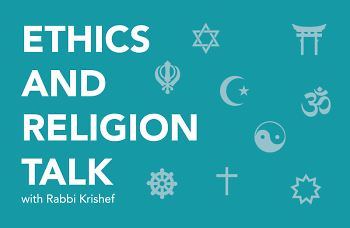This week’s column is a continuation of the examination of two fascinating questions prompted by the following story sent to us, touching on issues of marrying when one partner is impotent, or alternatively, living together without the benefit of marriage. Here’s the story:
“I'm 82 and love my significant other very much. And she loves me. We are both Catholic and the church says we cannot get married because I am impotent. It seems to me that we would like to at least live together and be together. Because I am not able to have sex and she really doesn't want or need sex why can't we just live together and enjoy the rest of our lives together? We do a lot of things together and so it just makes sense that we are able to be together and do the things that we like to do like play golf, go out to dinner, go dancing, traveling, etc. We attend church every week and are faithful to our Lord.”
We began exploring two questions last week. First, there is the question of whether marriage should be disallowed if one or both partners are impotent, and what is the basis for such a decision. And second there is the question of whether it is permitted for a couple, one of whom is impotent, to live together without getting married, in a platonic fashion, without sex – essentially, as roommates.
Fred Stella, the Pracharak (Outreach Minister) for the West Michigan Hindu Temple, responded:
“I appreciate the explanation about Catholic law, as I was not aware of it. There is absolutely no reason, according to Hindu tradition why a couple should not marry for simple companionship. There are 2 great 19th century saints of India, Sri Ramakrishna and his wife Sarada Devi. Their marriage, to the best knowledge we have, was never consummated. They lived entirely on a spiritual plane. I believe other Hindu couples have held this discipline as well. To be clear, this is not something that our scriptures encourage us to do, but if it can happen naturally, with little effort, it can be a very satisfying life together.”
As to the second questions, Fred responded:
“I suppose that there are some who might advise against permitting the couple to live platonically without the benefit of marriage, as people who are not aware of the arrangement might assume the relationship is romantic in nature, and thus judge the couple as opposing moral standards. I mean, you can’t go up to everyone you meet and say, ‘We live together, but we’re just good friends.’ But, I would encourage such a union if it met the emotional, psychological and spiritual needs of each.”
The Rev. Sandra Nikkel, head pastor of Conklin Reformed Church, responded only to the first question:
“Whoever denies a couple from getting married due to the reasons described above has not understood the true meaning and purpose of marriage. Procreation and sex are only some of the benefits of marriage. So, what is the main purpose of marriage? Ephesians 5:25-33 clearly defines for us that the main purpose of God in creating marriage is so that we understand how God loves His Church and relates to it. It is all about love (and as we know, sex and love are not always connected). Verse twenty-five tells husbands to love their wives, just as Christ loved the Church and gave himself up for her. There is no mention of sex at all there. Then in verse twenty-eight and twenty-nine this is explained even more clearly: ‘In this same way, husbands ought to love their wives as their own bodies. He who loves his wife loves himself. After all, no one ever hated their own body, but they feed and care for their body, just as Christ does the church.’ Again, there is no mention of sex here either and it’s not because God avoids talking about sex; it’s because sex is not the main focus of marriage. Love is! I rest my case.”
And finally, the Reverend Colleen Squires, minister at All Souls Community Church of West Michigan, a Unitarian Universalist Congregation, responded:
“Unitarian Universalists understand there are many expressions of love and human sexuality. We also feel this matter is between the consenting adults. We do not believe sexual activity is only for procreation. If two people wish to get married and live as a platonic couple by all means that is their right to do so. If two people wish to live together as friends, friends with benefits, as platonic roommates, or as a platonic married couple please do so. You have our blessing.”
This column answers questions of Ethics and Religion by submitting them to a multi-faith panel of spiritual leaders in the Grand Rapids area. We’d love to hear about the ordinary ethical questions that come up in the course of your day as well as any questions of religion that you’ve wondered about. Tell us how you resolved an ethical dilemma and see how members of the Ethics and Religion Talk panel would have handled the same situation. Please send your questions to [email protected].
The Rapidian, a program of the 501(c)3 nonprofit Community Media Center, relies on the community’s support to help cover the cost of training reporters and publishing content.
We need your help.
If each of our readers and content creators who values this community platform help support its creation and maintenance, The Rapidian can continue to educate and facilitate a conversation around issues for years to come.
Please support The Rapidian and make a contribution today.
